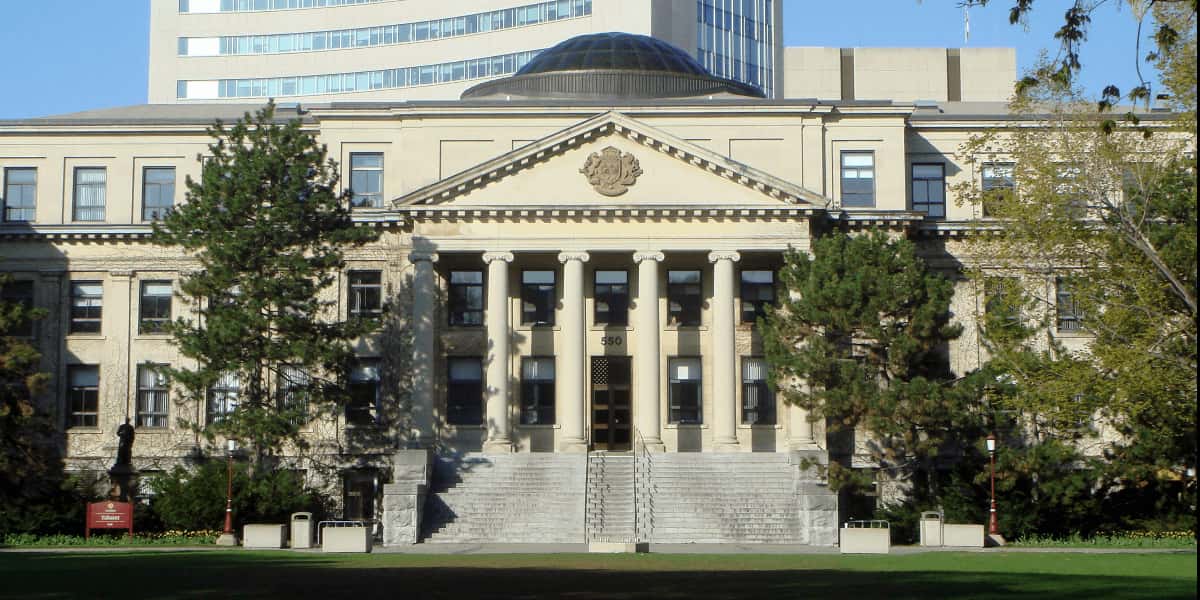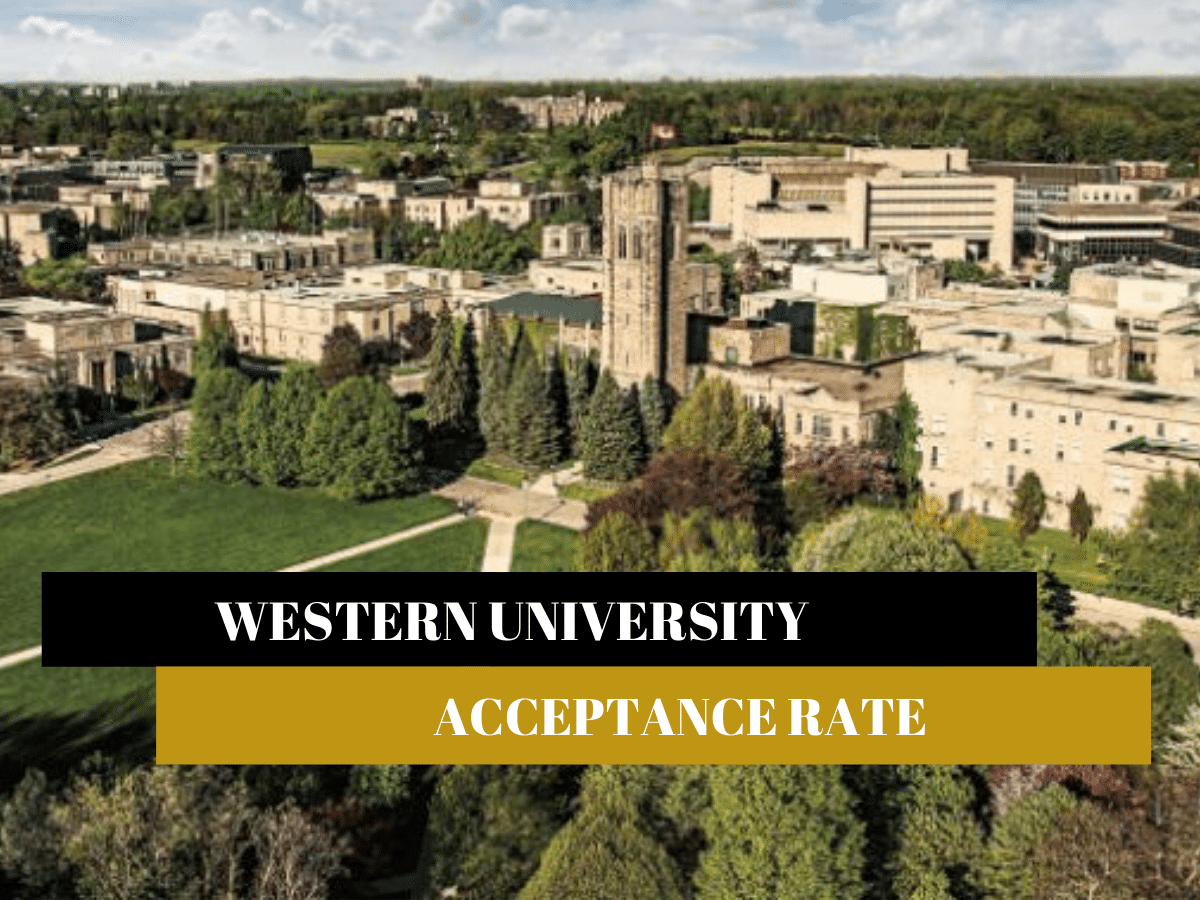Most international students come to Canada for their postgraduate studies. The reason is that Canada’s educational system is world-class and its programs are top-notch. In addition, you can work while doing a PhD program in Canada. So, learn about the best universities to study quality PhD programs in Canada.
Are you in search of PhD opportunities in Canada? Do you wish to further your studies by acquiring a PhD in this country? Read below to know how you can do a PhD in Canada.
Canada is actually one of the best places one can travel to for PhD programs. For you to get a PhD there, you’ll have to complete your original research and defend your thesis. PhD programs here takes a maximum of three years to complete. Some students complete theirs in two years’ time but this is determined by that particular institution as well as your course of study.
Once you complete your PhD, you’ll have the opportunity to work with leading experts and take advantage of modern high-tech facilities. It will also give you the opportunity to take advantage of one of the world’s most generous post-study work visa schemes.
So, in this post, we are going to show you how to get PhD opportunities in Canada, the requirements, duration, and cost. This actually worked for some friends. We hope that it works for you too.
Table of contents
- Why Should I Study to Get a PhD in Canada?
- How Long Does It Take to Get a PhD in Canada?
- What are the Requirements for a PhD in Canada for International Students?
- How Much Does It Cost to Get a PhD in Canada?
- Best PhD Programs in Canada?
- PhD Opportunities in Canada with Scholarship
- PhD Programs Without GRE in Canada
- How Can I Apply for a PhD in Canada?
- Frequently Asked Questions
- Recommendations
Why Should I Study to Get a PhD in Canada?
One of the most important reasons why international students choose to come to Canada for postgraduate studies is because of the high quality of education.
If a student acquires a PhD degree from a Canadian university, it acts as a mark of trust and excellence. Meanwhile, most of Canada’s universities rank in the QS World University Rankings 2024 and about 27 in the World University Rankings 2024.
Canada was the first country to link its institutions and libraries to the internet through its innovative SchoolNet program. Therefore, almost 90% of Canadian homes are connected to the Internet.
The Canadian Internet Registration Authority (CIRA) reports that Canadians rank 2nd in the world for the average number of hours spent online per user (41.3 hours per month). This will actually help you to make proper research online for your PhD thesis.
Canada is very peaceful and this is why it has been consistently ranked as one of the safest countries in the world.
The Global Peace Index in 2018 listed Canada as the sixth most peaceful country worldwide. As an international student that is coming for a PhD program, you’ll enjoy the same rights as any other Canadian.
International students in Canada are eligible to work up to 20 hours a week during school terms and full-time (30 hours/week) during summer vacation.
Actually, most international students don’t need a work permit to work while they study even if their job is on-campus or off-campus. Your study permit will show if you’re permitted to work off-campus.
Finally, education in Canada stands out because of its strong focus on research and development. The government of Canada always fund research in the fields of medicine, telecommunication, agriculture, and environmental science & technology.
How Long Does It Take to Get a PhD in Canada?
Most PhD courses require a minimum of three years of full-time study and research. Some students actually study for longer but the maximum duration is six years.
In most cases, universities for PhD in Canada require students to hold a Masters degree in order to gain admission for the program. On the other hand, some institutions offer doctoral stream Masters routes that begin with one or two years of MA or MSc study.
Check this out: Top Postgraduate PG Diploma Courses In Canada | 2024
What are the Requirements for a PhD in Canada for International Students?
Firstly, the minimum requirement for a PhD in Canada is a Masters degree in a related subject. But in the UK and the USA, students rarely go straight from undergraduate study to a doctorate.
Some universities may allow you to do so, but will normally extend the length of your PhD to accommodate additional Masters-level training.
Secondly, you need to provide a Grade Point Average (GPA) score instead of submitting only your final degree result. For you to be eligible for any PhD program in Canada, you must have a GPA of 3.0 or above.
Thirdly, you must provide a score from a Graduate Records Examination (GRE) or Graduate Management Admissions Test (GMAT) exam before applying.
This will give the universities the chance to assess the applicants’ suitability for the PhD program. It will also help them to decide between candidates with similarly good academic records potentially.
Furthermore, you may study a PhD in exceptional cases if you have “accelerated admission”. What this means is that you can do a PhD without a master’s degree. You’ll need to have a first-class degree in the last two years of your bachelor’s degree and research publications.
Finally, you’ll have the option of completing your PhD program in either English or French.
But this will depend on the province you choose to study in. The most common language for learning is English but universities in Québec and some in New Brunswick usually teach in French.
Just bear in mind that you must demonstrate proficiency in the language you choose to study in to complete your PhD. This option is required for students that French and English is not their first language.
How Much Does It Cost to Get a PhD in Canada?
To acquire a PhD degree in Canada is does not cost much. It is not that cheap for international students. This is because they have to pay more than Canadian students.
The fact is that the cost is cheaper than acquiring a PhD in countries like the U.S.A and the United Kingdom. The cost of a PhD degree differs between different universities and it changes periodically. Scholarship, on the other hand, can help to make it cheaper.
The average cost for a PhD in Canada is around CAD 10,000-20,000 (USD 7,500-15,000) each year. With the exception of the fees, students may also need to pay for other things like accommodation, living expenses, and so on.
For instance, the cost of a PhD at the University of British Columbia is CA$7,641 (US$5,760) a year for Masters by Research or PhDs. The University of Manitoba charges CA$$10,240 (~US$7,700) in years one and two.
Read also: Top Postgraduate PG Diploma Courses In Canada
Best PhD Programs in Canada?
Canada is a country that is rich in cultural heritage with a very good standard of living. A PhD opportunity in Canada offers a student high-quality education at renowned institutions.
The rate at which international students come to Canada for a PhD is mindblowing.
Some PhD programs in Canada have all the facilities for research and their curriculum is top-notch. They are also offered by some of the best universities in Canada. Graduates from these PhD fields have better job prospects all over the world.
Below are the best PhD programs in Canada:
- Francophonie and Diversity (PhD)
- Theological Studies (PhD)
- Management (PhD)
- Information (PhD)
- Chemical and Biological Engineering (PhD)
- Social Sciences (PhD)
- Theoretical and Computational Science (PhD)
- Management – Accounting and Control (PhD)
- Ministry (PhD)
- Education – with a focus on Educational Sustainability (PhD)
- Philosophy (PhD)
- Communication, New Media, and Cultural Studies (PhD)
- Civil Engineering (PhD)
- Electrical and Computer Engineering (PhD)
- Materials Engineering (PhD)
- Minning Engineering (PhD)
- Mechanical Engineering (PhD)
Check this out: Top 12 Ph.D. Scholarships For Chemistry Students, 2024
PhD Opportunities in Canada with Scholarship
There are several PhD scholarships available in Canada for international students to make studying more affordable. The Canadian government runs a useful website with a search tool to find scholarships based on your country of origin.
Another platform you can get them is on the official websites of Canadian universities. These websites may provide their own scholarships search tool to help you find one that suits your needs.
Some of the PhD scholarships available to international students in Canada include:
- Vanier Canada Graduate Scholarships (Vanier CGS) – The scholarships are worth $50,000 per year for three years during doctoral studies.
- The Ontario Graduate Scholarship – It is valued at $15,000 per year $5,000 per session for 2 or 3 consecutive sessions.
- Ontario Trillium Scholarship – It is worth $40,000 per year for full-time PhD programs at the Waterloo University.
- The University of Manitoba Graduate Fellowships (UMGF)
- Alberta Innovates scholarship at the University of Calgary – It is worth 26 500 dollars for masters and 31 500 for doctoral studies for a period of two and four years respectively.
- Graduate Award Competition at the University of Calgary – It is worth as much as $36,000.
- The Pierre Elliott Trudeau Foundation Doctoral Scholarships – The award is worth 60 000 dollars for a period of three years for PhD programs.
- Queen’s University International Scholarships – This is available for international students from India, Pakistan, and the US for studies at Queen’s University in Kingston, Ontario.
- Fairleigh Dickinson Scholarships for International Students
- Mcgill University Scholarships and Student Aid
- Carleton University Awards for International Students – It is worth about 10 000 dollars a year.
PhD Programs Without GRE in Canada
There are a couple of PhD programs in several Canadian universities that don’t require GRE scores. The following universities in Canada offer PhD programs to international students without GRE:
- Brock University
- Carleton University
- Concordia University
- Kwantlen Polytechnic University
- Lakehead University
- Laurentian University
- Laval University
- Memorial University of Newfoundland
- Royal Roads University
- Trent University
- University of Lethbridge
- University of Manitoba
- The University of New Brunswick
- University of Northern British Columbia
- University of Ontario Institute of Technology
- The University of Prince Edward Island
- University of Regina
- The University of the Fraser Valley
- University of Winnipeg
You can also read: Full List of Best SPP Colleges in Canada
How Can I Apply for a PhD in Canada?
The two ways in which you can apply for a PhD program in Canada include:
- Finding an advertised project and applying to it. Many projects already have a scholarship or financial aid that it carries. Unlike a conventional job opportunity, such projects are looking for the ideal candidate.
- Applying to a university’s doctoral program with your own research project. The first step here is to identify a suitable supervisor and choose a research topic.
Depending on the PhD course you apply for, you’ll need to provide the university with the following documents:
- Evidence of your previous study, qualifications, confirmation of your final result, and GPA. Universities in Canada may demand the transcripts of your Bachelors and Masters, plus information on your specific modules and grades.
- Information on your project details and plans. If you are choosing your own topic, you will have to submit a research proposal for it. But if you’re applying for an advertised opportunity, you’ll be required to provide a personal statement explaining your academic interests and ambitions.
- Two letters of recommendation. These will serve as your academic references. Your referees should be academics preferably.
- Evidence of test scores for any language tests or graduate admissions exams you are required to complete.
Deadlines for PhD applications in Canada are usually set by the institutions. We advise that you apply in the spring for an autumn start or vice versa.
Conclusion
Of all the many choices available to students, Canada is always the first. In fact, the number of international students that come to Canadian for PhD opportunities has risen dramatically over the last few years.
The universities in Canada that offer PhD programs are among the best in the world. PhD holders from institutions in Canada are always in high demand from several top firms worldwide.
International students that wish to acquire a PhD degree in Canada have a lot to gain. The benefits include world-class education, Canada’s tech wave, work while you study, research opportunities, and safety.
With all this, we advise that you consider Canada for your PhD program.
Check this out: Full List of DAAD Scholarship Requirements For Masters And PhD Students 2024
Frequently Asked Questions
It’s common for Canadian universities to offer some form of funding in return for doctoral students completing work within their department. Sometimes this is additional paid work, treated like a salary. Other times it may be a condition of a baseline funding package, or PhD fellowship.
The requirements to study in Canada at doctorate level vary between universities and courses, but you generally need the following: A master’s degree in a related field, with strong grades and proven research ability and potential.
References
- Canadian Studies (PhD) | Graduate Admissions
- Canadian university to fully cover international PhD fees
Recommendations
- 15 Best Canadian Medical Schools | UPDATED
- How can I get a Masters Degree in Computer Science in Canada?
- 10 Sure Ways to Get Scholarships in Canada [TRENDING]
- Study PhD In Canada: Everything You Need To Know
- Top 17 Ivy League Universities in Canada [Updated]
- 15 Best Business Schools in Canada
Does this article meet your immediate needs? If yes, leave us with a 5-star rating in the Review Box below. However, if no, leave a comment on the comment box to express your concern or ask the question and we will get back to you as soon as possible.





